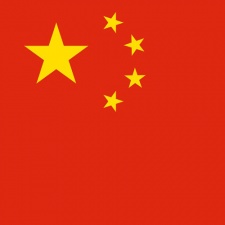Whether you like to admit it or not, the current global games market has been incredibly centered on the Western market for much of its life.
Though the likes of the UK and United States have been hubs for games development - both boasting huge consumer markets, too - the time of games being primarily made for a Western audience is now coming to an end.
With China opening up to foreign companies, there is colossal potential in this part of the world. Not only is there a massive population of 1.4bn people, but there is a rising middle class who have cash to burn. As a result, Western firms have been trying to get in on the action, teaming up with local firms to do so. You've got NetEase facilitating the launch of Minecraft as well as Activision Blizzard's roster of games and Tencent publishing Playerunknown's Battlegrounds and Fortnite in the region, to pick two huge examples.
But where before it would seem that China was viewed as an extra source of revenue for companies, i.e. they can make one game and just move it to China with a few content changes to appease the country's culture regulators, now the region is being baked in much deeper to games.
We've seen two instances of this in just the last few days.
The first was Ubisoft making a number of changes to its flagship online tactical shooter Rainbow Six: Siege. Announced via the game's website, the developer said that the removal of references to sex, violence and gambling from the title was coming ahead of a rollout to the Asian games market. Unsurprisingly, this has been met with a backlash from the
These teaks were to appease regulators in these regions, including China, which has strict laws about pretty much any content in public circulation. The decision to make this change globally was to make life easier for Ubisoft's developers - having one build for the entire planet as opposed to one for every single region makes updates and bug fixes much easier.
No doubt this Chinese launch has been facilitated - or at least influenced - by tech and entertainment giant Tencent helping get French media conglomerate Vivendi off Ubi's back and taking a five per cent stake in the publisher.
And then there's Blizzard rolling out a mobile version of one of its flagship IPs in Diablo Immortal. This was being made in collaboration with the company's long-running Chinese publishing partner NetEase - and bizarrely not Tencent, which owns almost five per cent of Activision Blizzard.
Predictably, this has already caused a great deal of anger in the games community, which has resulted in a dip in share value. This anger from the community largely stemmed from incorrect expectations - Blizzard had published a blog post in the build-up to its BlizzCon event talking about the future of the franchise. This led many to suspect that a brand new 'fully-fledged' [read: PC or console] iteration in the Diablo series.
Though PC certainly has its audience in China, without a doubt mobile is the dominant means of playing games and, well, living life in general for the 1.4bn people living in this part of the world. The fact that NetEase is on-board to help develop this suggests that this a product designed primarily for the Chinese games market and is coming to the rest of the world anyway.
This isn't to say that its game over for consumers in the West. This isn't a 'digital killing both print publications and physical games' conversation. There will still by a massive amount of content for users in America and Europe as there are still billions of people in these parts of the world who will be buying it.
But it's fair to say that we will start to see PC and mobile publishing giants place a great focus on the East moving forwards.
Come find out about the future of the PC games market at PC Connects London 2019. Emerging markets such as China are just one topic of discussion at the January 21st and 22nd event.
Tickets are available to buy right here. One ticket gives you access to not just this event, but also Pocket Gamer Connects and Blockchain Gamer Connects.


















